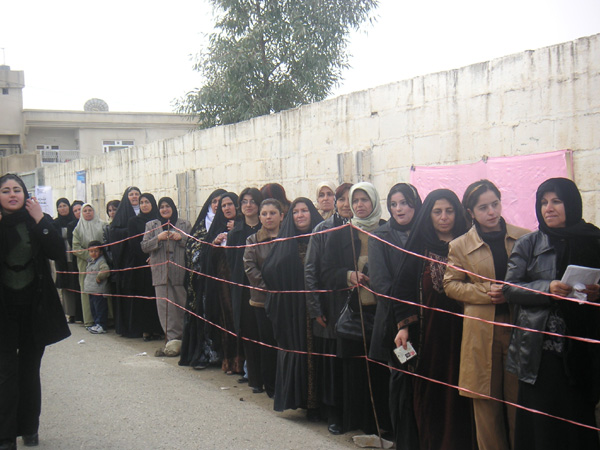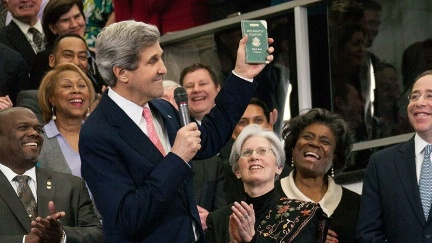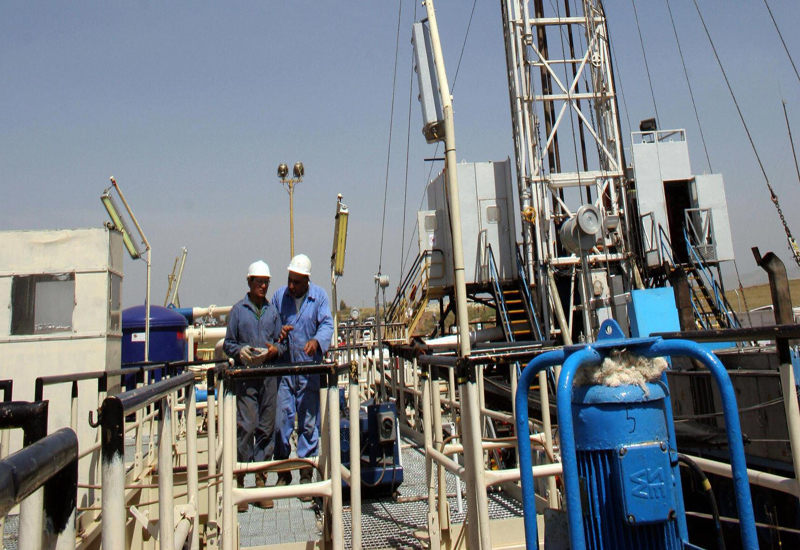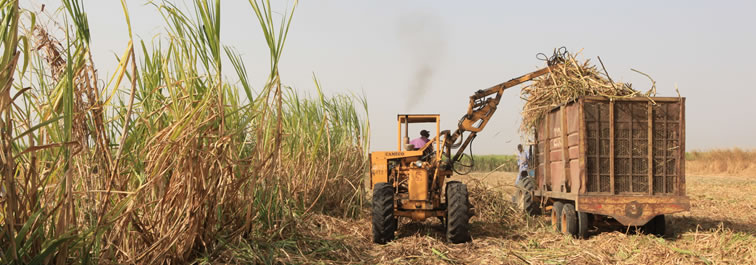There is heavy security across Iraq as the country votes in its first parliamentary elections since US troops withdrew three years ago.
Polling began at 07:00 local time (04:00 GMT) and closes at 18:00.
Prime Minister Nouri al-Maliki is hoping to win a third term in office amid a growing insurgency in the west of the country.
Iraq is experiencing its worst unrest since 2008, with 160 people killed in the past week alone.
Some 22 million Iraqis are registered to vote, with almost 50,000 polling stations open across the country.
It is a moot point whether it is possible to hold a viable election in such dangerous circumstances, but the truth is that holding it is better than the only alternative of not having one at all”
The BBC’s Quentin Sommerville in Baghdad says the streets of the capital are almost empty because it is in lockdown.
He says that many of the voters will have to go on foot – the authorities have banned cars for the day in an effort to stop suicide attacks and car bombers.
Some voters face multiple searches before being allowed into polling stations.
The first incidence of violence reported on Wednesday was in the town of Dibis, near Kirkuk in the north, where police said a roadside bomb had killed two women walking to a polling station.
Wave of attacks
While it is difficult to predict the outcome of the poll, Mr Maliki is still expected to be a pivotal figure in the coalition-building process which will follow the election.
The capital is in lockdown to try to prevent suicide and car bomb attacks
PM Nouri al-Maliki, who cast his ballot in Baghdad, will be a pivotal figure in post-election coalition making
Shia cleric Moqtada al-Sadr was also an early voter – in Najaf
Correspondents say there is likely to be a lengthy period of post-poll horse trading
His State of Law alliance, a Shia coalition, has largely avoided the fragmentation seen by other political blocs since the last election.
Our correspondent says that a result should not be expected any time soon. It took nearly 10 months to assemble a government after the last election, he says, and it is likely to take quite a lot of horse trading this time.
Baghdad voter Essam Shukr, whose son died in a suicide bombing last month, told Associated Press: “We want a better life for our sons and grandchildren who cannot even go to playing areas or amusement parks because of the bad security situation. We want a better life for all Iraqis.”
Abu Ashraf, who voted in west Baghdad, told Agence France-Presse: “It is necessary to change most of the politicians because they have done nothing, and they spend years on private conflicts.”
What you need to know about the election – in 60 seconds
The campaign has so far been a violent one, with 50 people killed on Monday when soldiers, police and overseas citizens cast their votes.
One bomb struck a Kurdish political rally in the town Khanaqin, killing 30 people and wounding at least 50 others.
On Friday, at least 31 people were killed as a series of blasts targeted a Shia election rally in Baghdad. The Islamic State in Iraq and the Levant – an al-Qaeda offshoot – said it had carried out the attacks.
However, the BBC’s Rafid Jaboori says he has travelled to various places in Iraq over the past few days and people have been telling him the violence will not put them off voting, particularly in the Shia heartland of the south and the autonomous Kurdistan region.
More than 9,000 candidates are competing for 328 parliamentary seats.
There will be no voting in parts of Sunni-dominated Anbar province, where security forces still battle Islamist and tribal militants for control of the provincial capital Ramadi and nearby Falluja.
BBC
Add a comment



